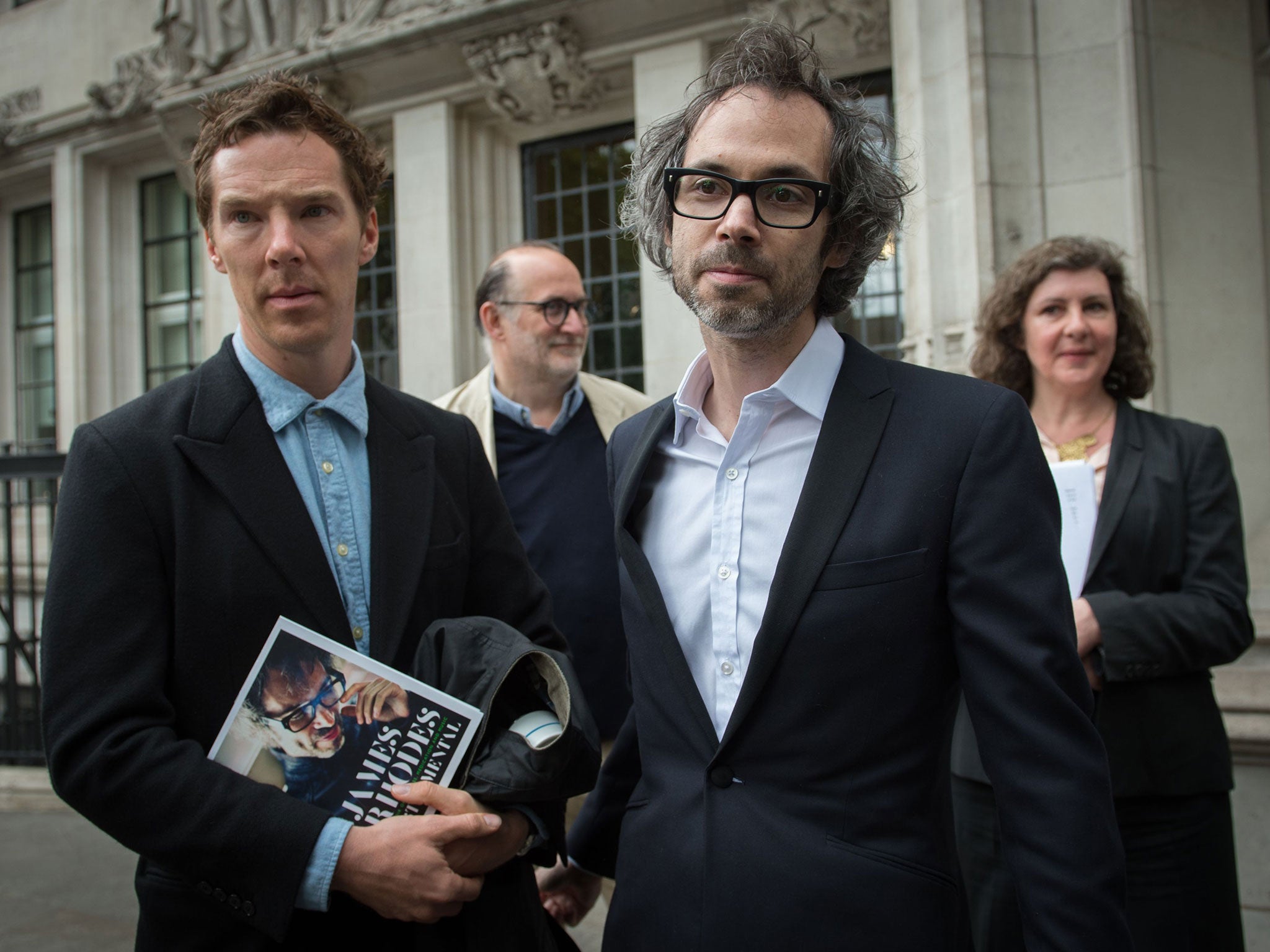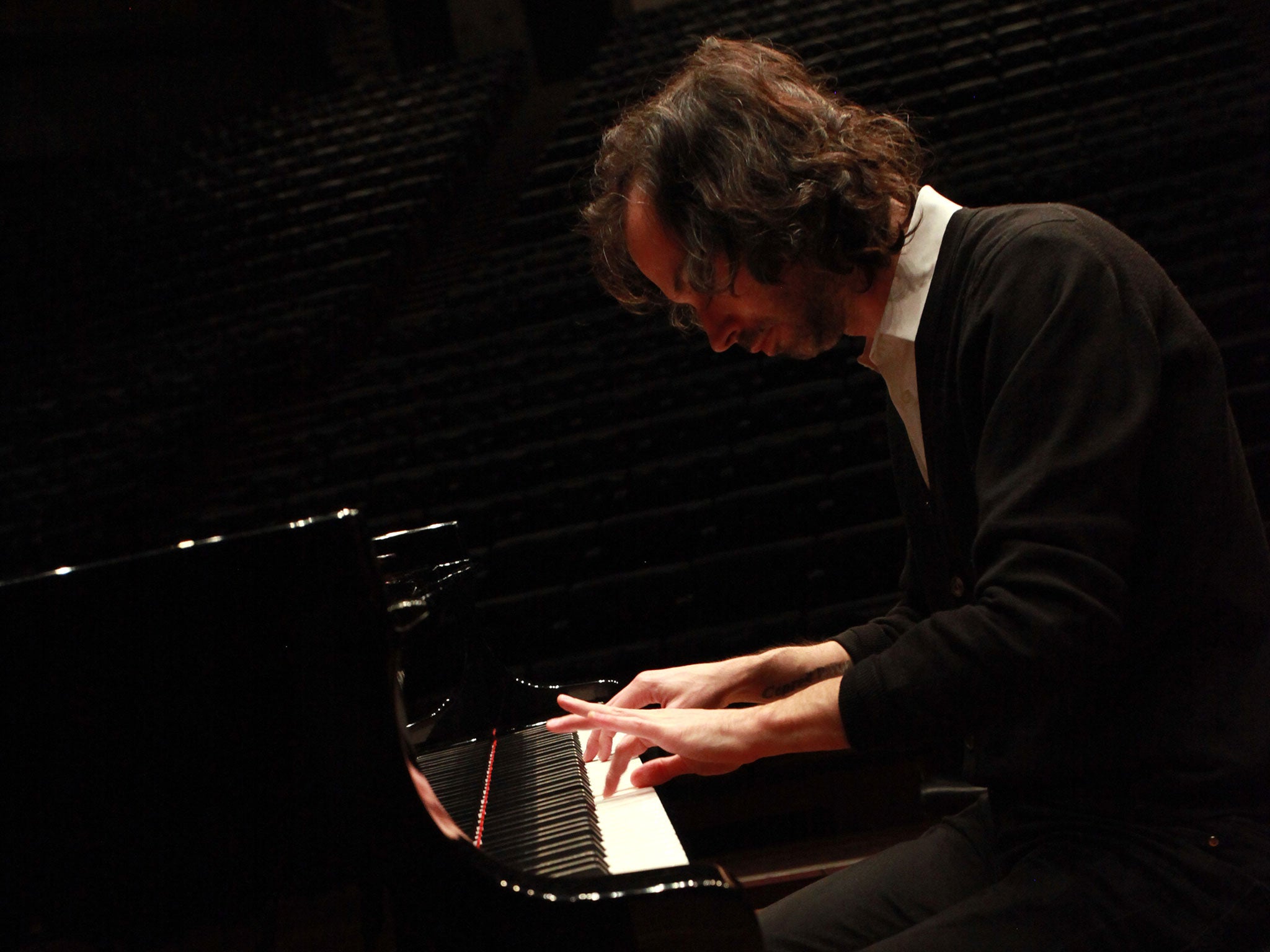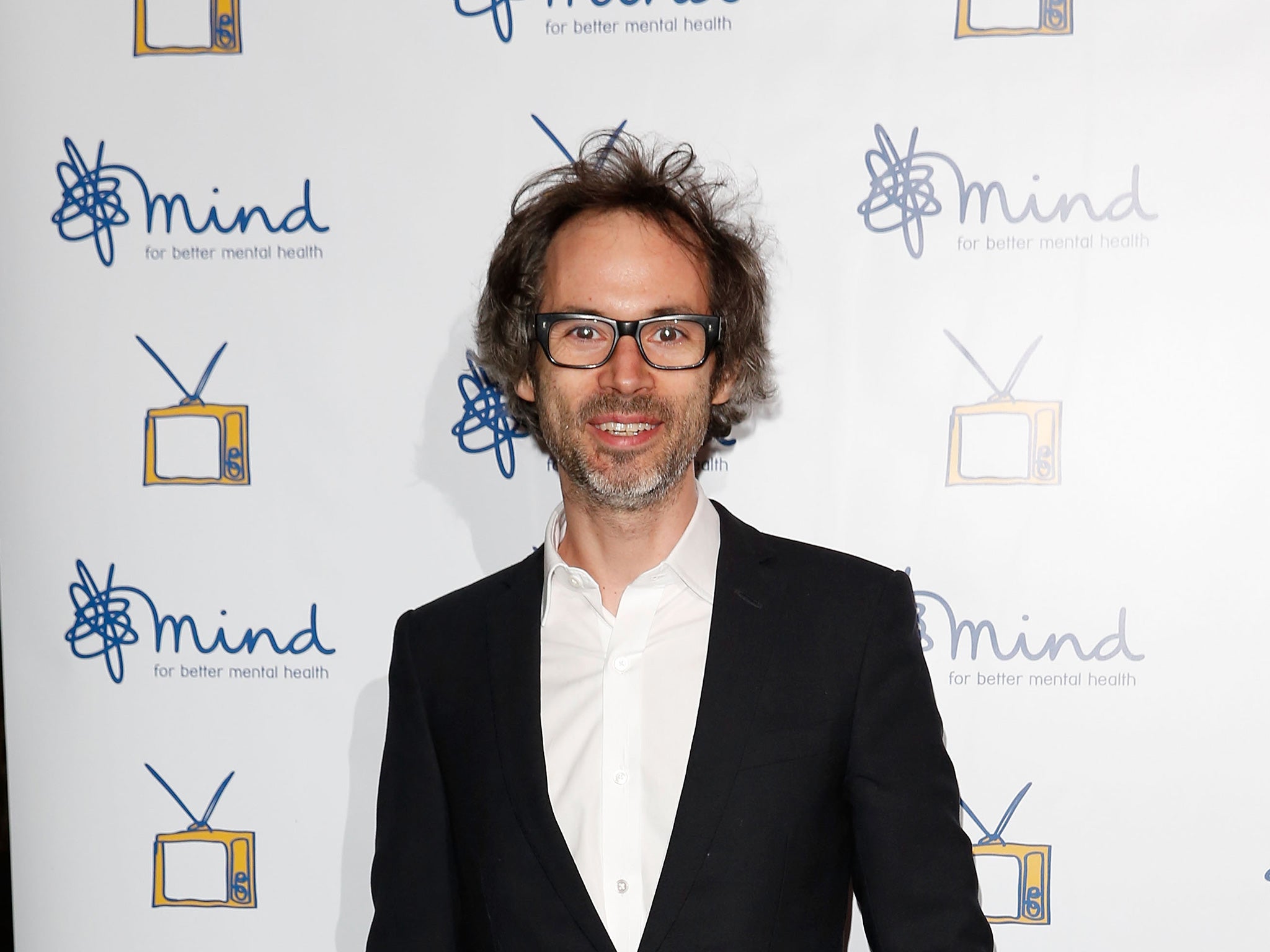'I was raped as a child, and only now can I tell my story': How James Rhodes fought the law courts in a battle to be heard
Now he can publish 'Instrumental', with its narrative of child sex abuse

When paedophiles say to their victims, as they all do in one form or another, “If you ever speak about this, unimaginably bad things will happen to you”, what they are doing is perhaps on one level even worse than the physical act of abuse itself. They are manipulating their victims into being complicit in the abuse. Forcing the victim to take responsibility for protecting the abuser means that every time you smile, shake hands, speak with and act normally in front of the abuser – as you must, because he is your teacher, father, uncle or priest – you become a little bit more complicit. It is the most toxic form of manipulation possible. And in addition to making it pretty much impossible to trust in any kind of safe reality forevermore, that ingrained and very real fear – that if you speak out, then the world will end – takes hold at a cellular level and rarely, if ever, leaves.
I was raped over a relentless, never-ending five years as a pre-pubescent boy by a gym teacher at my school. He was very, very good at ensuring my silence; so good in fact, that it took me 25 years to first speak about it. And then, in 2009, I gave an interview to the The Sunday Times. I mentioned what had happened to me – it was confined to one paragraph of a two-page piece – and as a result a teacher came forward who had witnessed the effects of that abuse. She and I went to the police and, when they found the guy, he was working as a boxing coach for pre-pubescent boys. He was charged with 10 counts of buggery and indecent assault against me.
This was the first time it seemed possible to me that bad things didn’t always happen if I spoke about “it”. Finding a foothold of courage from somewhere, among the dozens of interviews and articles that I wrote in the ensuing few years were a few that talked about sexual abuse and its legacy, and the messages of support and gratitude I received as a result of these ran into the thousands.
Having kept quiet for so long, having spent so much time and effort trying to destroy myself, having wasted so many months in psychiatric wards, I began to realise something new and important: simply being heard was one of the most effective ways of diminishing the shame and allowing myself to move on. Having my past witnessed and accepted with compassion and belief did more for my self-esteem than years of medication and therapy.
As my mental health started to improve from 2009 onwards, so my career started to flourish. I stopped taking medication. I started to sleep better. The voices diminished. I began to eat properly. I stopped cutting myself. I met the woman who is now my wife and one of the absolute reasons to believe in good. And then, in 2013, I was asked to write a memoir. I jumped at the chance, especially as the offer came from Canongate, a publisher whom I admired. I agreed not for financial reasons but because I love writing almost as much as I love playing the piano; because here was a chance not only to talk about composers, music education and the industry but also to write a novel-length love letter to both my wife, Hattie, and my astoundingly brilliant son (the great miracle from a previous marriage). It was also an opportunity to prove to myself once and for all that the guy who raped me was wrong: bad things would not happen if I spoke in a bit more detail. In fact, there was a chance that it would be witnessed, accepted and received with kindness. And I was ready, finally, to take that risk.
What happened next nearly put me back in hospital or worse. And though I wrote a much longer version of what comes next, a) it would have bored you to death and b) it would have landed me in prison. So on the advice of my lawyers, and in an attempt to avoid becoming somebody’s bitch inside, I’m going to avoid being too specific.

In brief: somebody leaked an early draft of Instrumental (catchy title, no?); and a month later, I and my publishers were hit with the threat of an injunction – brought on behalf of my son (who knew nothing about any of this) by my ex-wife, on the basis that he would suffer emotional distress and psychological harm were he to be exposed to the contents of the book – unless it was withdrawn immediately. Further, in addition to pulling the book, there was to be a potentially indefinite gagging order imposed that would stop me from speaking or writing in any medium anywhere in the world about the following:
1. Graphic and detailed accounts of the sexual abuse I had suffered and the lasting harm it had caused me (physical, emotional and mental);
2. Accounts of my serious mental health issues as an adult (including periods of treatment as an in-patient);
3. Details of my treatment for those mental health issues;
4. Accounts of my self-harming;
5. Accounts of my suicidal thoughts and suicide attempts.
It was made clear that my past history of sexual abuse and mental illness was so abhorrent, shameful and “toxic” (their word) that it should never be talked about except privately with close friends; and that, as far as the world at large was concerned, my past should in effect cease to exist.
In an effort to avoid the trauma and cost of protracted litigation I stripped several thousand words from the book, going above and beyond what my lawyers told me was necessary. After every re-submission the threat of injunction was repeated and my efforts were dismissed as unsatisfactory. Eventually, Canongate and I – both named as co-defendants – appeared in the High Court, where the judge not only found in our favour but struck out the claim, stating that the other side had no cause of action, nor should there be one.
I celebrated. I thought a line had been drawn and we could all move on. And then, incredibly, a few weeks later, shortly before publication and half an hour before performing a solo recital, I got an email telling me an appeal had been granted. While two of their three attempted causes of action were dismissed, they were granted the appeal on the basis that an obscure 1897 tort could be argued to apply in this case. The tort, never used in publishing before, relates to the intentional infliction of emotional harm. The lawyers’ argument was that, by publishing a truthful account of things that had happened to me many years ago, I intended to cause harm to my son (who wasn’t even alive at the time).
This idea was so absurd and abhorrent to me that I could hardly believe the court could take it seriously. However, Lady Justice Arden ruled that, despite the book being true, containing “striking prose” and “carrying an important message of hope” that would help many people, there should be an injunction until trial because there was a chance a judge would agree with the claimant that the book represented the intentional infliction of harm. The original ruling was overturned, and the case was ordered to go to trial for a judge to decide its fate.
Meanwhile, a temporary injunction was put in place: I could not speak about any aspect of my past mentioned above; translations of the book were put on hold (we had sold it already to the Netherlands, Italy, Germany and Spain); customers who had pre-ordered it were sent emails saying it was delayed but not given a reason why; serialisation in a major newspaper was cancelled and 10,000 copies (already printed) sat in a warehouse while we awaited a High Court trial six to nine months in the future.

After a few weeks of enforced silence, I asked for a “public domain exemption” to apply; this would mean that I could speak about my past if what I said had already appeared in the press or on television. This was granted, although the injunction banned “graphic language”. (When we asked what that meant, we got responses such as “no colourful or vivid descriptions”, or “You can use the word ‘rape’, but not the phrase ‘getting raped’.”)
It seemed the Court of Appeal had become my editor both in print and in voice. And although reporting restrictions had been put in place, ensuring everything was anonymised and I could not be identified, there was outrage in the papers and online. Legal blogs around the world found the decision beyond baffling, entirely without reason or precedent, and intensely scary.
In a desperate attempt to avoid the trial – the long wait, the horror of being cross-examined for a day, the emotional and financial cost – my lawyers asked the Supreme Court for permission to appeal the Court of Appeal’s judgement. (They do this in perhaps one per cent of interlocutory cases such as this). Three freedom-of-speech NGOs intervened on my behalf at their own expense. The Supreme Court said yes, Canongate joined the appeal, and in January five of the most powerful judges in England heard the case. They refused to let us know when a decision would be coming, and I spent weeks in a permanent state of anxiety waiting for it to arrive. In fact, their decision took so long that two trial dates (April and then June) were vacated because we wouldn’t have enough time to prepare, and the trial was relisted for December. Finally, after a four-month wait, the news came through. We had won. In a 68-page judgement, the Supreme Court ruled unanimously that the Court of Appeal decision was wrong and overturned it. Instrumental can, and will be published.
The Supreme Court wrote in their judgement: “The only proper conclusion is that there is every justification for publication. A person who has suffered in the way that the appellant has suffered, and has struggled to cope with the consequences of his suffering in the way he has struggled, has the right to tell the world about it. And there is a corresponding public interest in others being able to listen to his life story in all its searing detail.”
Before all this started, I was happier than I had been in years. I was engaged to the woman of my dreams, fulfilled in my career and friendships. I smiled at people on the Tube, and woke up excited at life. By the time of the final court hearing, I was on anti-schizophrenic medication, with a shot immune system and an adrenal system on its knees. My Twitter and Facebook feeds were being monitored round the clock and anything the opposing lawyers felt was inappropriate (a generic tweet about free speech after the Charlie Hebdo atrocity, for example) led to instant threatening letters demanding their deletion.
On the day of transmission of my Channel 4 series Don’t Stop The Music, they wrote to the channel’s lawyers to make them aware of the injunction, despite our assurances that it was a series about music education in primary schools and didn’t contain references to my past. They even demanded to know what I would be saying at concerts and in interviews.
And, of course, I was not allowed to speak about any of this. I could not mention the phrase “legal issues”. I had to put much of my career on hold, pull out of certain engagements, and even to turn down an invitation to appear on Newsnight – to discuss historic sexual abuse – as it could have put me in contempt. I could not let people know the hell I was going through. Were I to speak about this in public, directly or indirectly, then it was punishable by imprisonment.
The potential legal bills were telephone numbers. I mean, bowel-loosening, terrifying, beyond-belief big. Before the Supreme Court decision I was liable, should I have lost, to pay roughly £700,000 – and that was even before the trial. I could not get legal insurance for this sort of claim.
It all got too much. I wrote my will. I called the Samaritans. I wrote notes, put computer passwords, bank details and email accounts in a safe place for my best friend to deal with. I made a plan. And a backup plan. I existed on a few choppy hours’ sleep each night and somehow managed to work and give concerts while crippled with anxiety. The very fact that our justice system was seriously considering banning a book because it contained a narrative about child abuse that someone on the other side of the world, where it wasn’t even going to be published, found unpalatable was just too shocking to get my head around.
It felt, and forgive the victim mentality here, like being raped all over again. I lived in constant fear that the next email would be from one of the dozen lawyers involved; that it would be another astronomical bill, a threat, a court summons, an accusation; yet another 1000-word letter explaining why I was so utterly disgusting to talk about things that were done to me 30 years ago; or, worst of all, that the book would be banned and I would be gagged for the next 20 years.
Without my wife Hattie’s support, my brilliant team of lawyers, the overwhelming kindness of close friends and the extraordinary courage of Canongate, I don’t think I would have made it this far. At any stage I could have dropped the book, sold my flat, paid over half a million in legal fees and moved on with the promise that I would never again talk about my past abuse or any aspect of my past and current mental illness. But were I to do that, then they would win. Not just those behind this action. No. Those who rape. The six-foot, 200lb man who for five years pinned me down and half spat, half whispered to me that bad things would happen if I told anyone.
Well, fuck you. FUCK. YOU.
I’m going to tell the world. Because you can’t open a newspaper today without yet more vile revelations of the sexual abuse of children on an industrial scale. Because I didn’t do anything wrong. Because there are too many like me who didn’t make it and now can’t talk about it. Because it is not something to be ashamed of. Because, if it took me – with my privilege, famous friends, healthy bank balance, semi-public voice and team of psychiatric experts – over a YEAR to be allowed to speak out; and only then after hearings in the three courts, thousands of emails, 4,000 pages of dense statements and arguments, and hundreds of thousands of pounds, then what kind of chance does someone from Rotherham or Kincora or Rochdale have of ever being heard?
© James Rhodes 2015
‘Instrumental’ will be published by Canongate on Thursday (£16.99 hardback; available also as an ebook)
The Samaritans provides a round -the-clock support service, every single day of the year for those who need to talk to someone. Please call 08457 90 90 90 (UK) 116 123 (ROI), email jo@samaritans.org, or visit www.samaritans.org to find details of the nearest branch
Bookmark popover
Removed from bookmarks